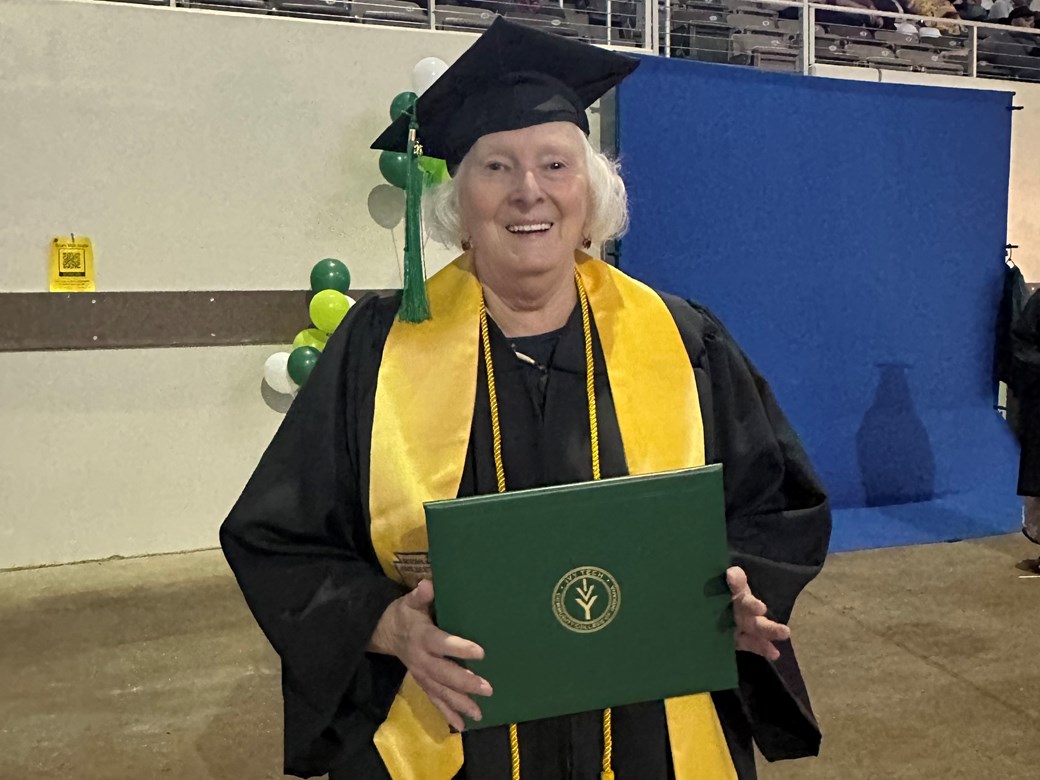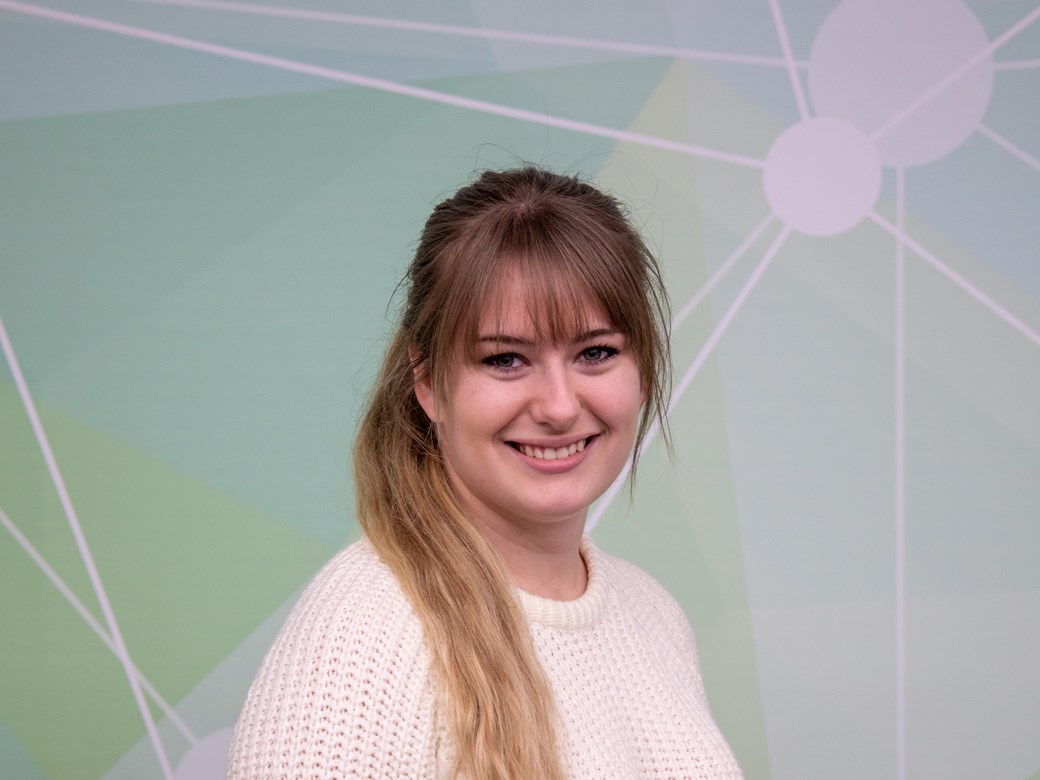The next time you drive from the Indianapolis International Airport to downtown in the summertime, look at the golden flowers along I-70. That's the Black-eyed Susan.
Did you know that bright and bubbly wildflower is native to the Midwest? Many people will likely not know this fact and much less about the world of native plants.
This is something Entrepreneurship student David Cowburn is looking to change.
 David Cowburn
David Cowburn
"Each ecosystem has its own biodiversity, its own ecosystem – a balance of nature, if you will. And generally, for millions and millions of years, this balance has been totally fine. But recently, humans increasing globalization has allowed certain plants that aren't native to certain areas to go to other areas. And this often can disrupt things pretty insanely," Cowburn said.
These invasive species force native plants to compete for limited resources, which can alter habitats. Such aliens can threaten the extinction of native plants and reduce biodiversity, Cowburn says.
"Invasive alien species affect the economy, biodiversity, natural beauty, wildlife habitats, climate change, water resources, and soil chemistry. And this is just scratching the surface. There are so many other things that these invasive species affect," Cowburn said.
According to the National Oceanic and Atmospheric Administration (NOAA), such threats from invasive species can have a substantial economic impact and fundamental disruption for much of our country's natural vegetation.
One way of supporting native plants and helping to balance local ecosystems is to buy from local plant nurseries.
To encourage the purchasing of local native plants to better our ecosystem's biodiversity, Cowburn, through Ivy Tech's Entrepreneurship program, is creating a search engine and online marketplace called the "Nature of Origin."
"The goal of Nature of Origin is to encourage biodiversity and local nurseries with a single solution. Nature of Origin hopes to provide a quality search engine and an online marketplace for buying native plants from local nurseries designed to improve your area. I also hope to educate the public on the importance of biodiversity and its role in their ecosystem," Cowburn said of his business.
Cowburn says that almost all plant platforms he searched didn't list a native plant on the front page. "This is a huge issue," he said.
"And most big box stores don't show any indication of where the plant is native to unless the plant's location is literally part of its name," Cowburn said.
Plus, who gets pushed to the top of Google Search's first page? Businesses are spending big advertising dollars.
"Global competition makes it hard for local businesses to sell their plants, especially mom-and-pop shops; they compete with places like Amazon and other big box stores," Cowburn said. "It'd be extremely difficult for any sort of local nursery to get its seeds spread now. So, choosing these native plants from local nurseries will also help aid their growth."
It's a noble business pursuit and a significant undertaking for the 22-year-old. A blue-collar worker looking to follow in his parents’ entrepreneurial footsteps, Cowburn is passionate about local nurseries and supporting their success.
Through Nature of Origin, website visitors can type in a city or zip code, and it will populate a list of plants and flowers native to that area's biodiversity and the names of nurseries and shops that carry those plants.
Visitors of the Nature of Origin website can also learn more about their specific area's ecosystem and the plants that help balance out their biodiversity.
"I find it extremely important that people get connected with plants that are local in their area and businesses that are local," Cowburn said.
Cowburn's light bulb moment for Nature of Origin came to him during the discovery phase of Ivy Tech Indianapolis' Entrepreneurship program.
"During that, I was like, I want to help the ecosystem. I want to help with ecology. What can I do? So, I was like, 'I'll just start my own nursery! I'll start growing plants for people,'" Cowburn said. "And then I realized, 'Oh, wait. I don't have a lot of money. I don't have a lot of these resources to just start growing things on my own.' So I thought, 'What's a way that I can get into this space without much startup cost?'"
Through his partner, who works in human-computer interactions, Cowburn knew there was a possibility of creating an online marketplace with little to no inventory that instead required his expansive knowledge of biodiversity and the long work of research.
"It's just a matter of me trying to figure out a solution to each problem as I go along. Trying to ask myself the right questions and getting advice from people along the way. Like, my teacher, Tearra Dotson, she's been fantastic. She's really encouraged the way I think about what questions I should ask while growing my business," Cowburn said. "Because when I jumped into this at the start, I was like, 'I'll just do this. That won't be an issue.' And then I realized the more that I researched and the more that I looked into things, the more I asked questions, the more likely I could make a reliable product. And I can feel more confident in myself and my business."
Cowburn was inspired to enroll in Ivy Tech's Entrepreneurship program after his older brother graduated from Ivy Tech's Nursing School. Right after high school, Cowburn began working blue-collar jobs, which he enjoyed but soon found he was getting bored.
"I realized you can only make as much money as you put into it physically. And I wasn't about that," Cowburn said.
Cowburn is happy he chose Ivy Tech's Entrepreneurship program. He says not only are his instructors impressive, but so are his peers. He says they inspire him to work on his own company more.
"It's very exciting to be a part of this program," Cowburn said. "I'm going to take it one class at a time. I'll be finished when I finish because, really, my primary focus is to grow my company. I want to learn the skills more than anything because I need to prove to myself that I'm capable of this thing rather than prove it to someone else."
Cowburn's website has yet to go live as of this blog's publish date. When it does, the article will be updated with a direct link to the Nature of Origin URL.
LEARN MORE: Ivy Tech Garatoni School of Entrepreneurship & Innovation
About Ivy Tech Community College
Ivy Tech Community College is Indiana's largest public postsecondary institution and the nation's largest singly accredited statewide community college system, accredited by the Higher Learning Commission. Ivy Tech has campuses throughout Indiana and also serves thousands of students annually online. It serves as the state's engine of workforce development, offering associate degrees, long- and short-term certificate programs, industry certifications, and training that aligns with the needs of the community. The College provides a seamless transfer to other colleges and universities in Indiana, as well as out of state, for a more affordable route to a bachelor's degree.




